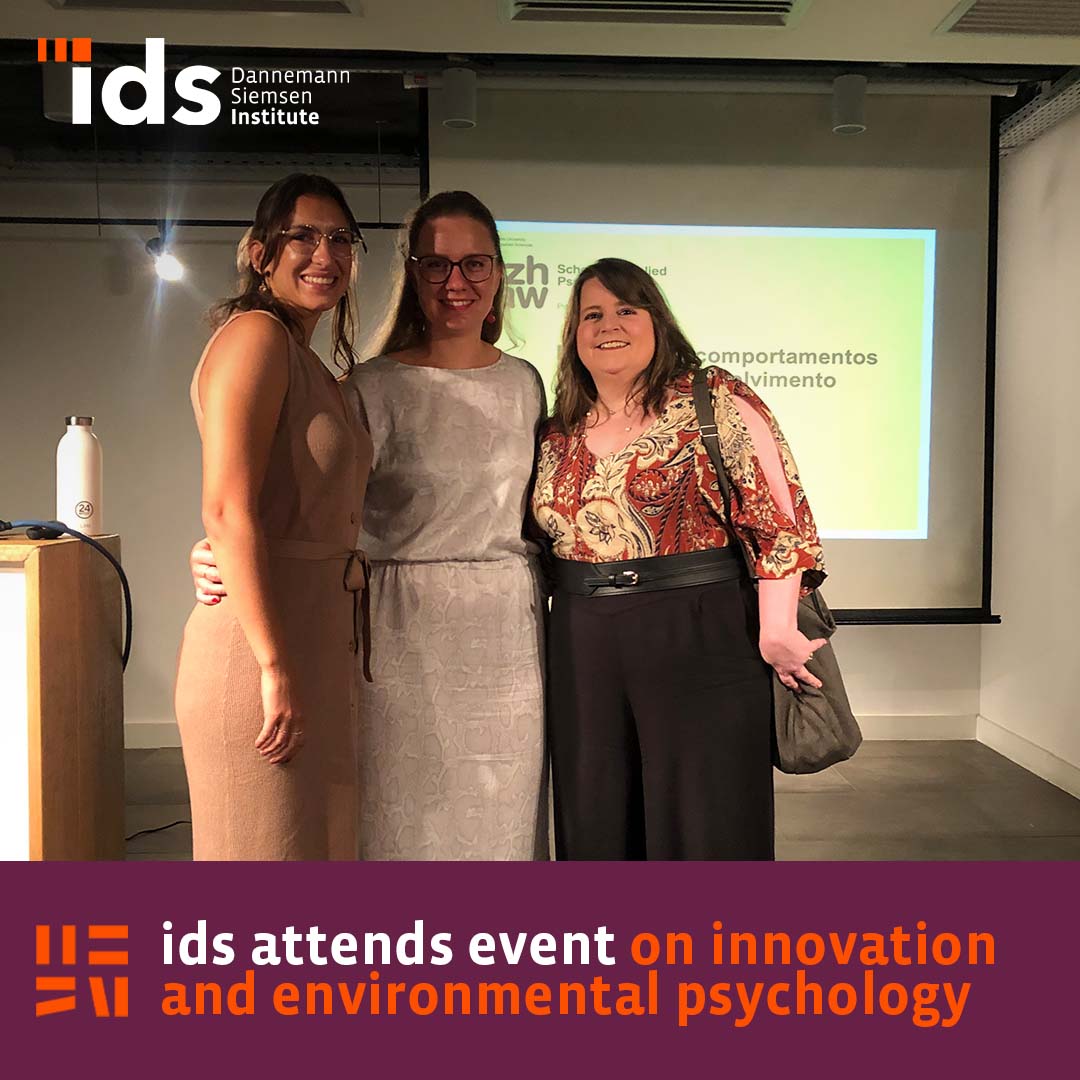27 de novembro de 2023
Share
IDS attends event on innovation and environmental psychology
Last Thursday (23), IDS, represented by its Academic Coordinator, Patricia Porto, took part in an international event on innovation combined with environmental psychology. The meeting was promoted by Swissnex, a global network of the Swiss Confederation that connects partners, projects and initiatives in education, research and innovation, with the aim of strengthening exchanges between Swiss professionals and those from other countries with innovative potential. The target audience for the event was academic institutions that adopt sustainable environmental policies.
The event featured a lecture by Professor Cathérine Hartmann, from the Faculty of Psychology at the Zurich University of Applied Sciences, who presented her research in the field of environmental psychology, with a focus on changing human behavior for the sustainable development of public and private environmental policies.
The professor began her presentation by considering that individual and collective choices affect climate change and other global environmental issues. Cathérine also said that the use of environmental psychology is one of the tools capable of influencing changes in the behaviour of individuals and organizations, with the aim of adopting more sustainable practices that help to reduce the negative impact of human actions on the environment.
As a practical example, she cited the use of environmental psychology techniques in companies to educate and make employees aware of adopting more sustainable habits – such as creating a routine of selective collection, less waste of paper, water, energy, etc.
Cathérine believes that human beings are creatures of habit. For example, if a company manages to establish the habit of avoiding printing on paper and using double-sided printing on one sheet, once its employees internalize this practice, they are unlikely to return to their previous conduct, not least because the behaviour of the individual is influenced by the behaviour of the group. Another example she mentions is the use of environmental psychology to help citizens adhere to a certain public environmental policy implemented by the government.
Note: For quick release and cost control, this English version is provided by automated translation without human review.
